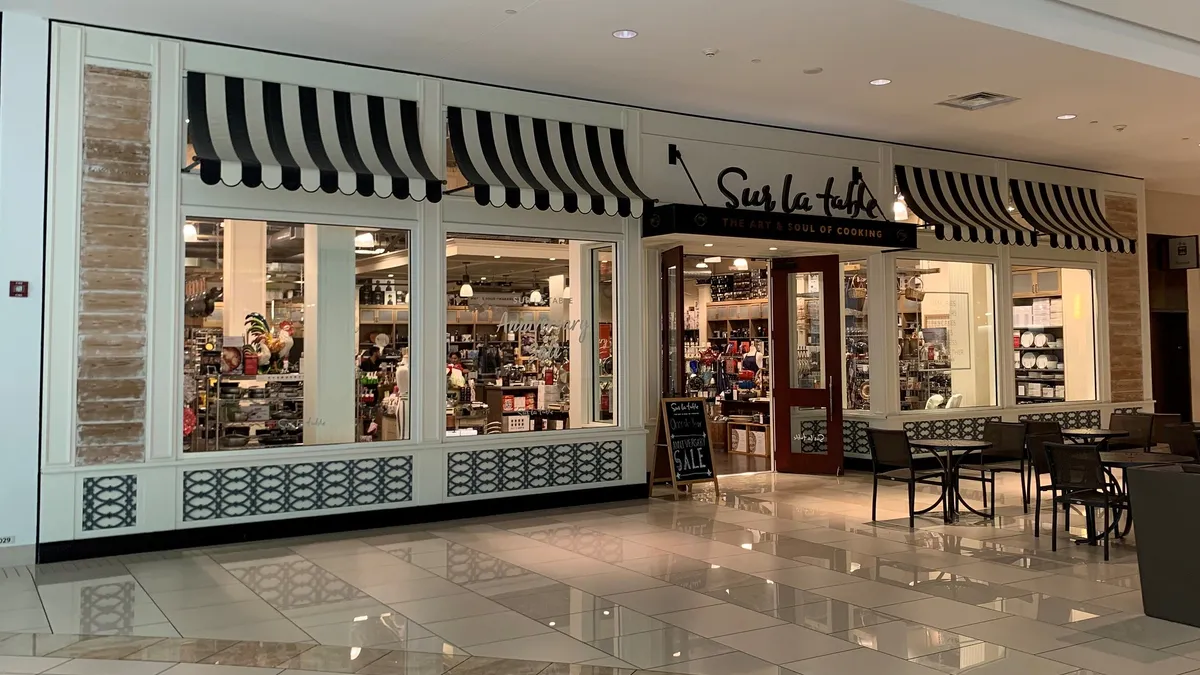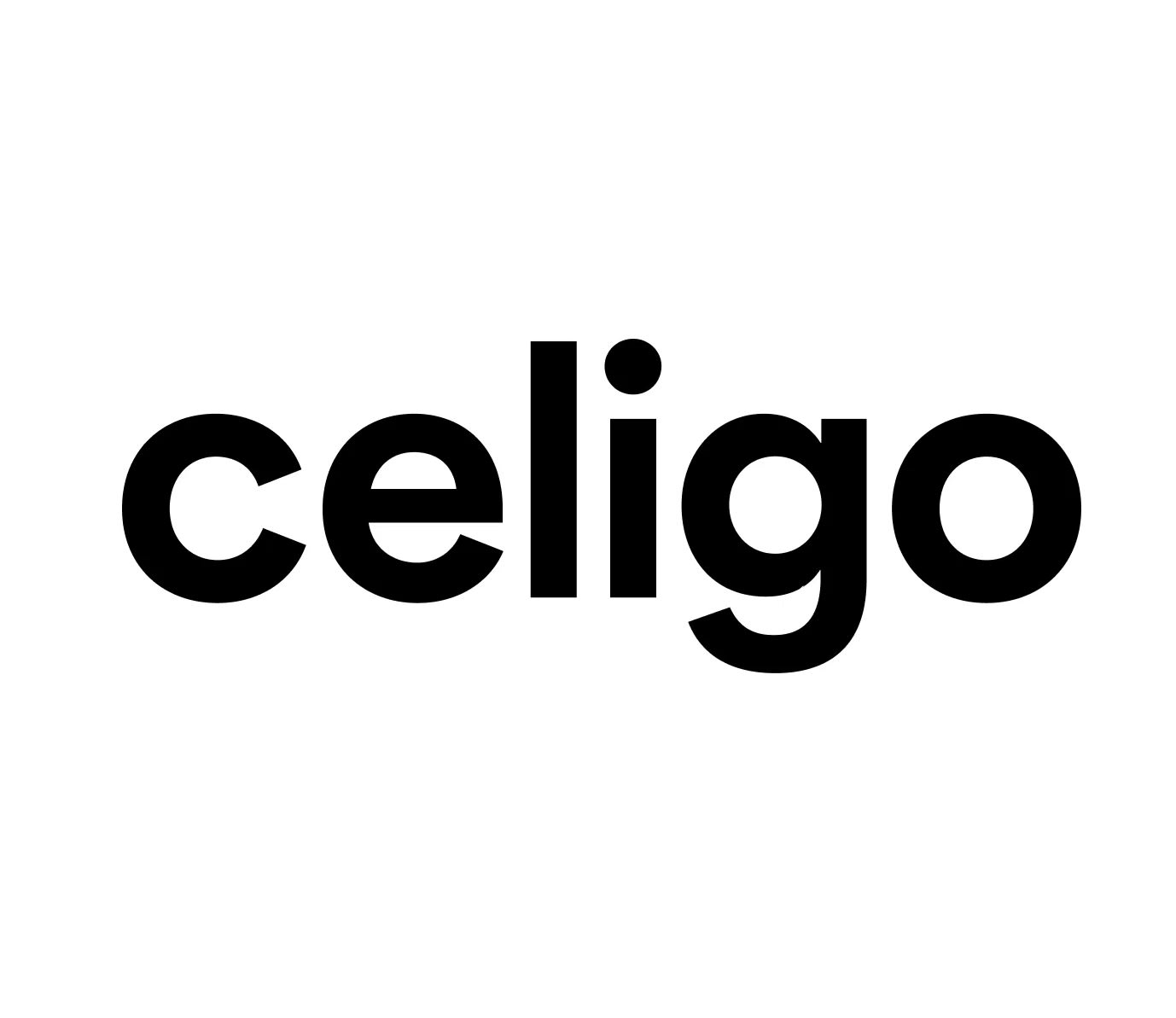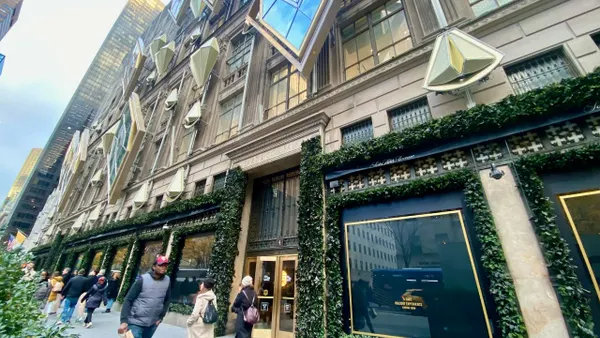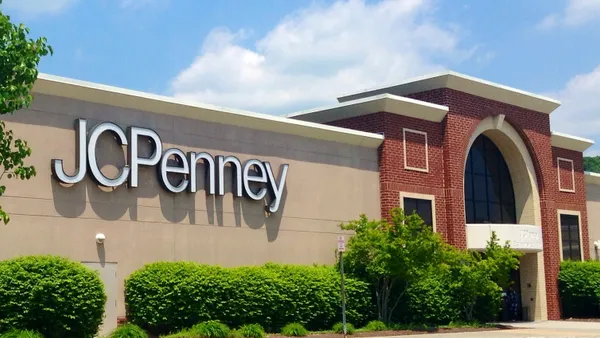Dive Brief:
- Kitchenware specialist Sur La Table filed for Chapter 11 bankruptcy protection Wednesday with the aim of paring down its store footprint and selling itself.
- The retailer has a bid from private equity and investment firm Fortress Investment Group, which is partnering with Story3 Capital Partners, another private equity firm.
- The bid would set the baseline for a bankruptcy auction and would include up to 70 of the retailer's 121 stores, as well as the Sur La Table's e-commerce operation and revenue-generating cooking classes, according to CEO Jason Goldberger.
Dive Insight:
Sur La Table has grown steadily since its founding in Seattle's Pike Place Market in 1972. The retailer first offered cooking classes at its Berkeley store in 1996, well before the rush of the industry toward experiential add-ons like meditation classes, spas and cocktail service.
Today, cooking classes are Sur La Table's fastest-growing business segment, accounting for $35 million in revenue, Goldberger said in court papers. The COVID-19 crisis damaged that business in recent months, with the company temporarily suspending cooking classes, as it did Sur La Table's store sales.
The retailer has a relatively robust e-commerce operation today, accounting for some $80 million in annual revenue (compared to $230 million in store revenue), but Goldberger said online sales "were nowhere near sufficient" enough to offset the company's monthly $4 million rent expense or the lost store revenue during the closure period.
And although landlords were understanding at first during the crisis, they have since adopted a "more aggressive posture," Goldberger said. Some gave the company rent relief, but others have pursued eviction proceedings against the retailer and many more have issued threats.
As of July 4, all of the retailer's stores were open. Yet it's worth noting Sur La Table's largest concentration of locations are in California (30 stores), Texas (13) and Florida (10) — all states undergoing a surge in COVID-19 cases.
The company had struggles years before the pandemic, tied to traditional retail's broader struggles and exacerbated by declining home meal-making and shifts to e-commerce, according to Goldberger. Over the years, Sur La Table's store footprint outpaced demand as foot traffic fell, and it wrestled with capital costs from installing commercial-quality kitchens for its classes and shifting toward an e-commerce centered strategy.
"[T]he Debtors [i.e., Sur La Table] have seen meaningful revenue decline for the past 5 years," Goldberger said. "Compounding the Debtors' overall distress was significant executive turnover in the past several years; I am the Debtors' third CEO since 2017."
If all goes according to plan, Sur La Table will leave bankruptcy intact, with new owners. Fortress would represent another in a string of private equity owners over the years, starting with Freeman Spogli's acquisition of the company in 2006, followed by Investcorp's purchase of Sur La Table in 2011.
The bid highlights the value the market sees in Sur La Table and its physical stores, even as they head for the surgeon's knife in bankruptcy. Other retailers haven't fared so well this year in Chapter 11. Pier 1 and Stage Stores, for example, both sought buyers for their companies. Both came up short, opting instead to liquidate their brick-and-mortar business.
And while the COVID-19 pandemic brought financial difficulties, it may have also reversed some the trends in home cooking, as people stuck in their houses stockpiled flour and made forays into baking and cooking. In a press release, the retailer said that it believed "it is exceptionally well positioned to thrive in the post-COVID-19 world, as food, cooking and in-home entertainment continue to capture increasing mindshare of consumers."















